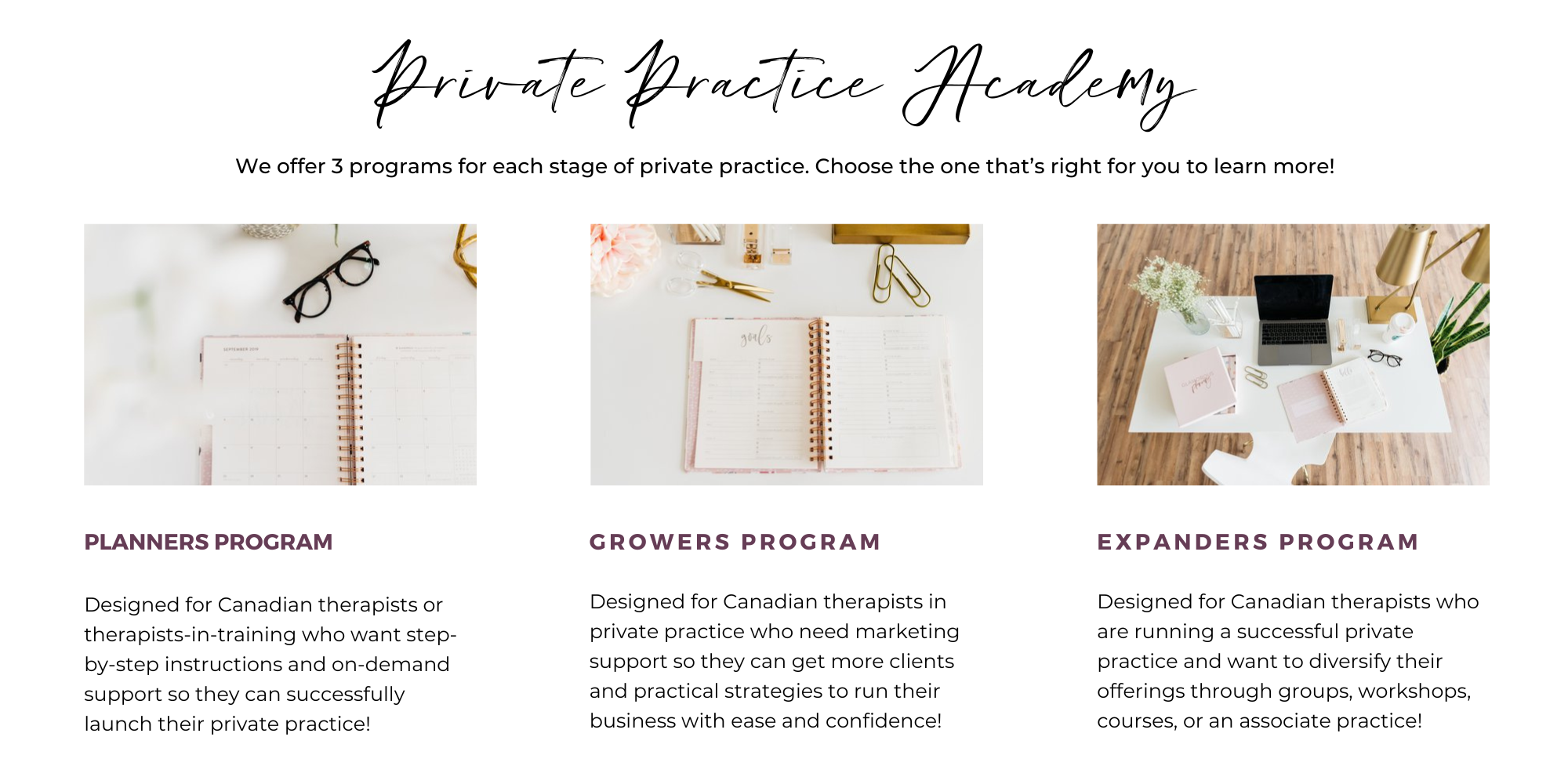How to Manage Stress in Private Practice
As a mental health professional, hearing out your clients' stress-related issues is part of your daily grind. But, how often do you check in with yourself to consider how the weight of your work is impacting you? It is common for counsellors to suffer burnout or compassion fatigue from working with clients. While you are most likely aware of common self-care tools—as you recommend them to your clients—we are all guilty from time-to-time of not heeding our own advice! As a result, you might not realize how stress is slowly devouring your well-being. As a professional, it can be just as difficult to de-stress as it is for your clients. Here are some tips that will help keep stress at bay.
Take Time Off
As a counsellor, your work orients you to think about others first. This is a natural tendency, but know that you can’t truly care for others unless you are taken care of. No matter how many appointments you might have lined up, make sure you take time off to relax. Research shows that time off is necessary for counselors to thrive in their profession.Taking time off doesn't always have to mean a vacation, although that is a great idea! Other ways to deal with stress include doing things that soothe you such as gardening, cooking, playing your favorite sport, or spending some quality time with your family. It’s about finding something that takes your mind away from counselling so that you can recharge.
Create Clear Boundaries Around Your Work
Dealing with any kind of client effectively could mean that appointments spill over their allocated time. If you continue scheduling back-to-back counselling sessions, you can become mentally fatigued. This does not bode well for either you or your patients, causing you additional stress.To avoid such scenarios as much as possible, try to maintain boundaries for each appointment. Work towards ending your sessions on time. Set a small chime or soft alarm if that helps. Schedule your sessions so you have time in between. Use these breaks to sip on a cup of tea, have a snack, read something, or connect with a colleague. You could also practice mindfulness in these gaps, to promote wellness…take a little bit of our own advice!
Create a Supportive Environment
Although your work environment might not be entirely in your hands, as you cannot always choose your colleagues and supervisors, a cohesive working environment is a key factor in managing stress while counselling. If you are in private practice, try to work with your colleagues to ensure a mutually beneficial and cozy environment for everyone.While you strive to provide a conducive environment for your patients to open up, do not neglect the importance of a healthy environment for yourself. Use your surroundings to help you feel comfortable, safe, and relaxed.
Use Natural Stress Remedies
As a private practice mental health professional, you might be hard-pressed to find time for self-indulgence. Though you advocate for self-care when speaking to patients, it can be difficult to apply it to yourself.Sometimes, the simplest de-stressing tools are right at your fingertips, like unplugging from electronics or consuming less caffeine. There are also remedies like aromatherapy, chamomile tea, and herbs such as ashwagandha and valerian root that can also help you relax and recharge. CBD oil has also grown in popularity for its ability to reduce anxiety and promote a sense of calm. Luckily all these remedies are affordable, and they don’t take time away from your practice!
Focus on Diet and Exercise
Mental health counselors, with their busy schedules, often tend to neglect their nutritional and fitness needs, eventually leading to illness and exhaustion as well as a lack of concentration and potentially a loss of passion. Ensure you manage your stress by nourishing your body and mind through healthy, balanced meals and regular, simple exercises like walking.
Letting Go
As much as you want to help others, you need to set boundaries to ensure you keep yourself in good shape. Try to leave work at work. Relegate tasks like returning calls and emails and completing paperwork to working hours at your office. After work, begin to let go of the day and try not to dwell on any particular case. It is a lot harder than it sounds, but if you do not take care of yourself as a professional today, your clients might lose their ally in wellness in the future. Neglecting stress can affect even the most balanced mind among us. Take good care to get the rest, relaxation, and connection you need to be at your best.
p.s. Our Launch Your Practice Program teaches you everything you need to know to successfully launch your private practice, and also includes personalized support from an experienced coach! Be sure to check it out!

